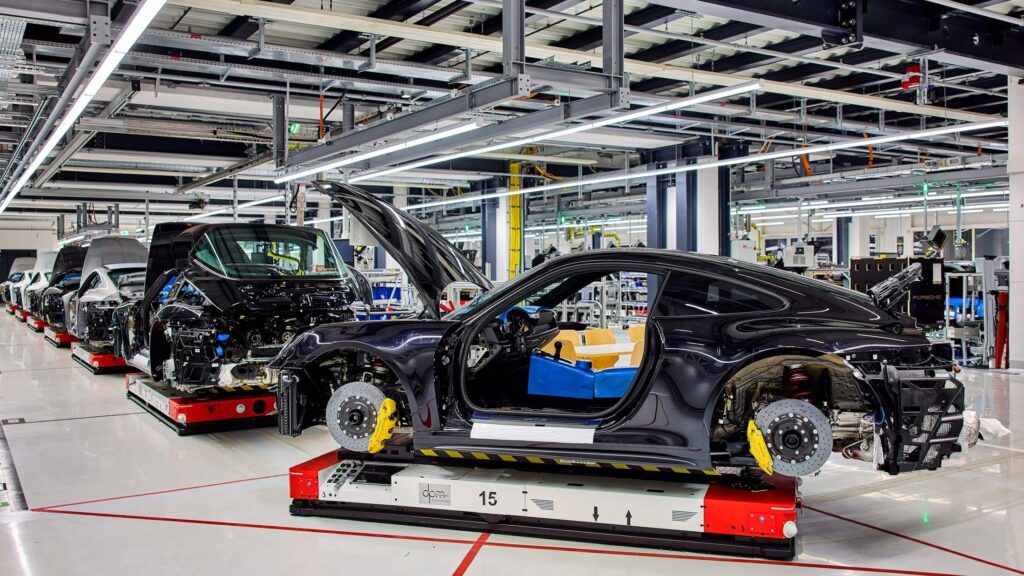Jobs
Electrification Could Cost Almost 200,000 German Auto Jobs By 2035 | Carscoops

Study predicting huge job losses in German car industry comes as VW demands workers take 10 percent pay cut to save their own positions – and the company
16 hours ago

- New study predicts German auto industry will employ 186,000 fewer people by 2035.
- The reduction is due to the switchover to electric cars.
- Prognos says change will create more jobs in areas like IT, but overall headcount will fall.
If you wanted to start work at 18 with confidence that you could put in 45 or 50 years before sailing off to a happy, comfortable retirement, a job in the German auto industry always seemed like a solid bet. People are always going to want Golfs, right? But a new study says that thinking is outdated and reckons hundreds of thousands of workers could be left unemployed in as little as a decade, with EVs shouldering much of the blame.
In the same week VW asked workers to take a 10 percent pay cut to save their own jobs, an investigation by Prognos suggests it might only be delaying the inevitable. The report predicts the switch to electrification would reduce the number of workers in the German auto sector by 186,000 in 2035 compared with 2019 levels.
Related: VW Wants To Eliminate Bonuses And Cut Wages By 10%
The headcount reduction is mostly, but not exclusively, the result of the ‘drive systems’ of electric cars requiring fewer components than their combustion predecessors, meaning that both automaker employees and those working in the supplier industry risk losing their positions.
Jobs related to welding and metal processing, as well as business management and administration, will become more scarce, the report claims, but automakers will need to recruit more people working in IT, in electrical engineering and also (perhaps surprisingly) in mechanical engineering. Overall, though, more jobs will be lost than created, so while workers at risk would be wise to retrain, there still won’t be enough roles in 2035 for everyone currently employed in the auto industry.
The Prognos report says that the transition in the makeup of jobs at German automakers has been going on for the past few years, but will pick up steam over the next 10. And nowhere is evidence of the shift clearer than at VW, which this week asked its employees to take a pay cut and could be about to close three factories having never previously shut a plant in the company’s entire history. In fact, only a few days ago it was reported that Audi will shut down its Brussels plant, where the Q8 e-tron is manufactured, in February 2025.

VW chiefs claim that radical steps must be taken to help the company navigate its way through some tough times. And workers must be prepared to make some sacrifices in the short term if they’re to have any hope of safeguarding jobs in the long term.
“We urgently need a reduction in labor costs in order to maintain our competitiveness. This requires a contribution from the workforce,” Arne Meiswinkel, the VW brand’s personnel boss said, according to Reuters.
The automaker is struggling with a perfect storm of rising costs, a slower than expected uptake for its EVs in Europe and the US, and declining market share in China.









